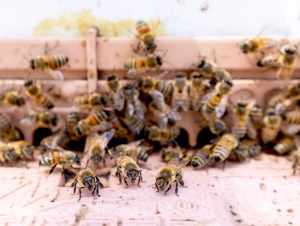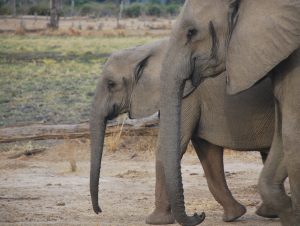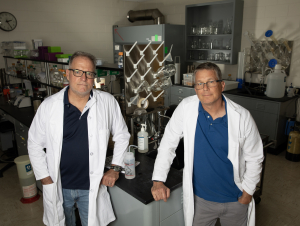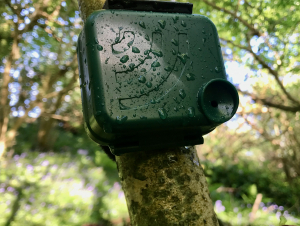To request a media interview, please reach out to experts using the faculty directories for each of our six schools, or contact Jess Hunt-Ralston, College of Sciences communications director. A list of faculty experts is also available to journalists upon request.
Latest News
Each year, exposure to airborne particulate matter known as PM2.5 (particles with a diameter smaller than 2.5 micrometers) leads to millions of premature deaths worldwide. Organic aerosols are the dominant constituents of PM2.5 in many locations around the world. Historically, the chemical complexity of organic aerosols has made it difficult to gauge their toxicity level. But a study led by researchers at Georgia Institute of Technology has advanced understanding of both the chemical composition of PM2.5 and the reaction of alveolar cells of the lungs exposed to this pollution, highlighting the growing threat posed to human health.
In response to changing climates, many plants and animals are moving to higher elevations, seeking cooler temperatures. But a new study from Georgia Tech and the University of Colorado Denver finds that flying insects like bees and moths may struggle with insurmountable issues to this escape route.
As part of an $11.6 million research initiative, Biological Sciences postdoctoral fellow Sarah Orr will leverage a new USDA Fellowship to study the impact of synthetic pesticides on bumblebees — a key pollinator for U.S. agricultural production.
The new research explores the historical shifts in mammal traits and biodiversity loss in eastern Africa, revealing how environmental changes have disrupted mammal communities and highlighting the urgent need for targeted conservation efforts to protect vulnerable species.
A newly funded research project might one day lead to the development of a pill or capsule able to boost the effectiveness of traditional vaccines against influenza, which kills as many as 52,000 people and leads to hundreds of thousands of hospitalizations a year in the United States.
Scientists at the Georgia Institute of Technology and Max Planck Institute for Intelligent Systems in Stuttgart have published a perspectives piece on the different tools used throughout the world aiding in the conservation of wildlife and biodiversity.








